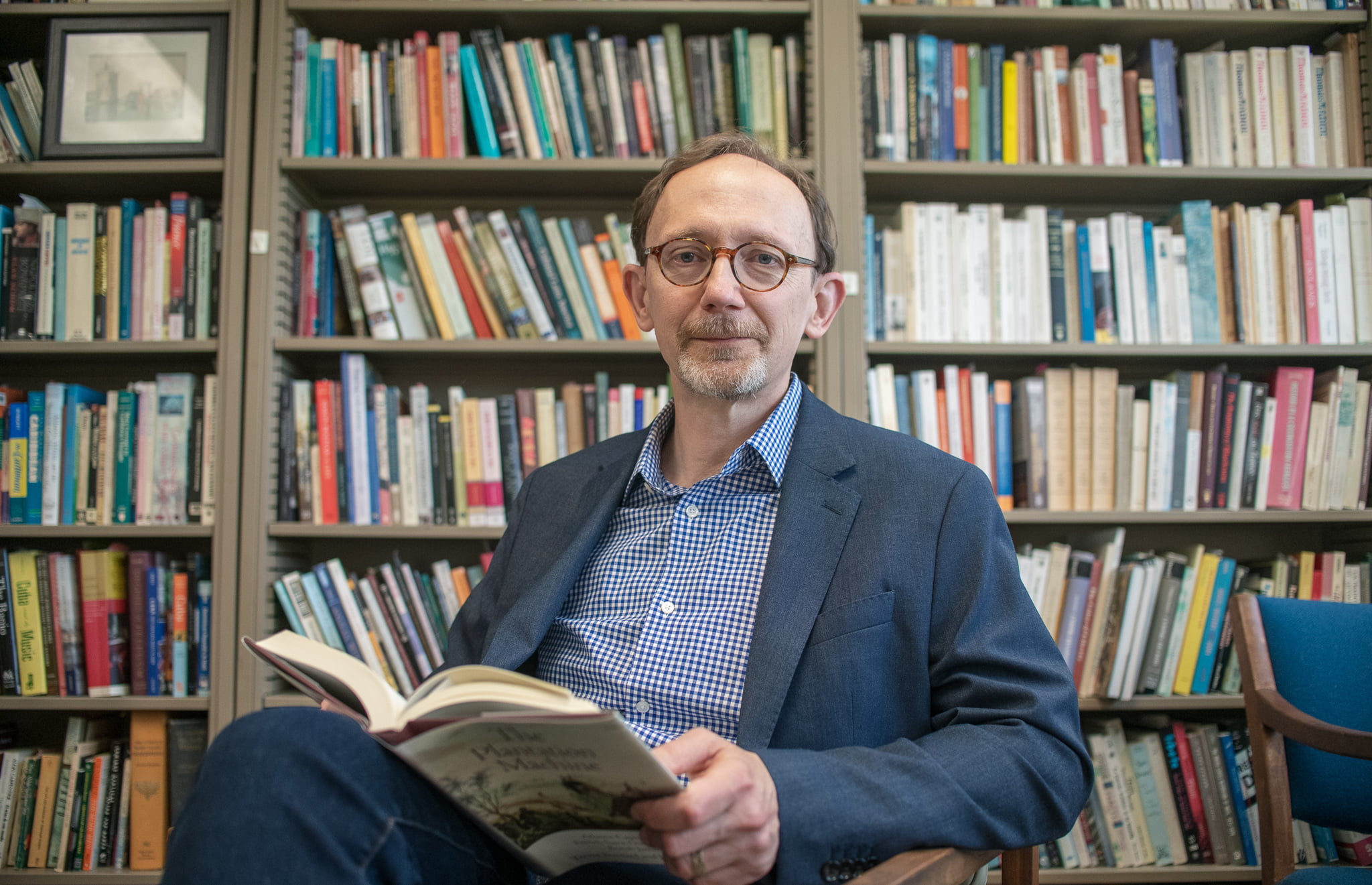UTA Q&A: John Garrigus

In 2019, John Garrigus, professor of history, became the first scholar from The University of Texas at Arlington to be selected for the prestigious Andrew Carnegie Fellows Program.
He was one of 32 chosen from a pool of 273 nominations and the only fellow from a Texas university in his class. Garrigus is a leading scholar of Atlantic and Caribbean history who uses archival research and geographic information systems technology to provide fresh insight the 18th-century Haitian revolution—the only successful slave uprising in modern history.
1. How would you describe your research?
I study the pre-conditions of the Haitian Revolution, the world’s only successful slave uprising. It began in 1791 with a massive slave revolt and ended in 1804, when black leaders who had defeated Napoleon’s troops declared independence from France. Haiti became the second independent nation in the Americas, after the United States and before any other Latin American country.
2. What can we learn from taking a closer look at the Haitian Revolution?
For decades after Haiti declared independence, no other country would officially recognize its existence, for fear of angering France, which was planning to invade and recolonize what had been its most profitable possession. Haiti spent the first quarter of the 1800s isolated from international trade and building a military to fight that invasion. When France decided not to attack, it forced the young country to pay a huge sum to its former colonists in exchange for diplomatic recognition. This plunged Haiti into a spiral of debt for nearly a century. There’s a lot more to Haiti’s recent history, but economic isolation and crippling debt shaped the country when it was young.
3. How did you become interested in researching Haitian history?
I went to graduate school to study the French Revolution and then realized that the Haitian Revolution was much more important, especially in the Americas, because it’s the only place where enslaved people defeated their masters. In the last 20 years, there’s been an explosion of popular and academic interest in Haiti’s revolutionary attempt to create a new society in the 1790s, where former masters and former slaves could live together as equal citizens.
4. What past accomplishment are you most proud of?
I’m most proud of my first book, Before Haiti, which won the Gilbert Chinard Prize from the French Historical Society. It focuses on how racism changed in the French colony before the revolution broke out. Under French colonial control, Haiti had the largest and wealthiest free population of color (free blacks but also free-born biracial people) in the Americas. In my book, I describe how the French initially regarded free-born biracial people as white, but then gradually changed that definition to classify them—inaccurately—as ex-slaves. Angry about this growing racism, free people of color started the political turmoil that eventually turned into a slave revolution.
5. What do you like most about being at UTA?
I came to UTA in 2006 after 20 years at a teaching-centered university in Florida. I love teaching but wanted more time to pursue research. UTA has given me that time, and I enjoy teaching graduate courses that keep me current in my field. UTA’s History Department is a community of distinguished researchers who are also passionate about teaching. UTA is the perfect place for me.